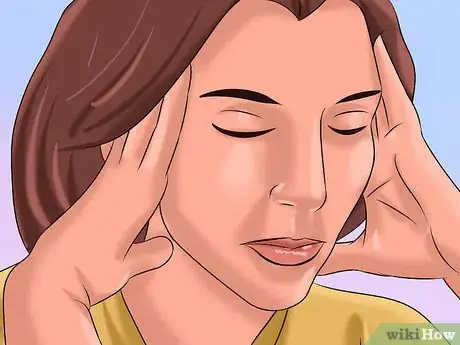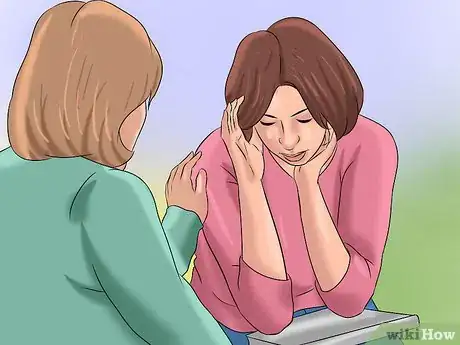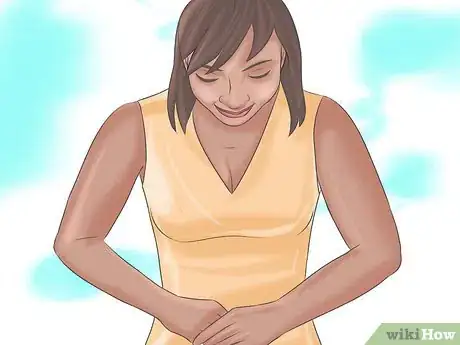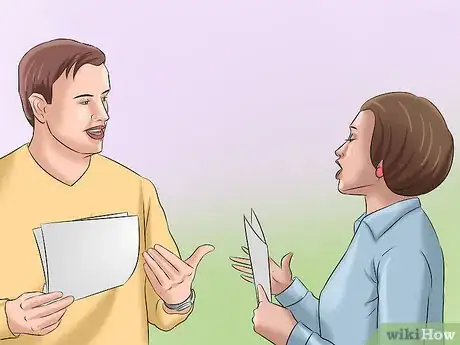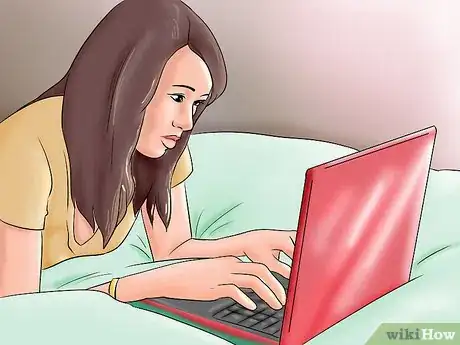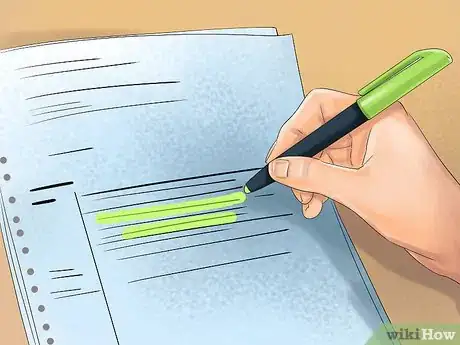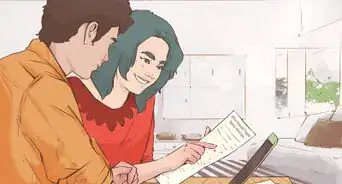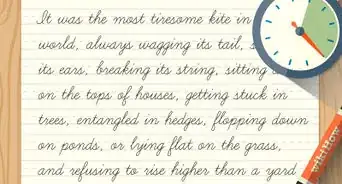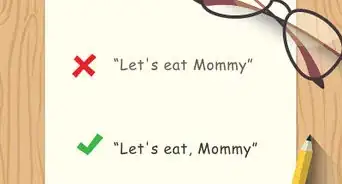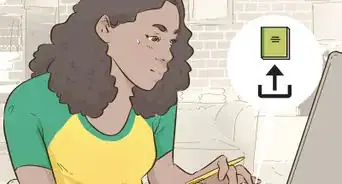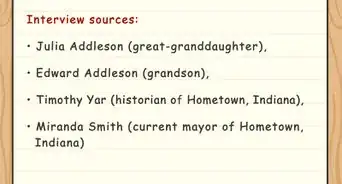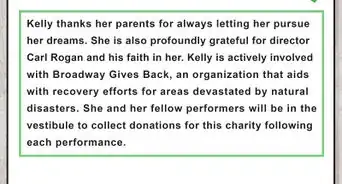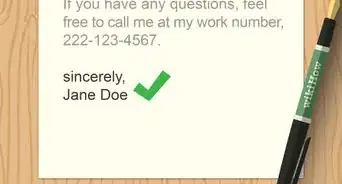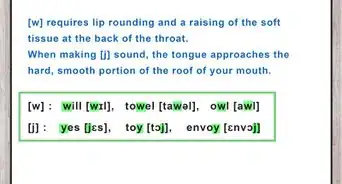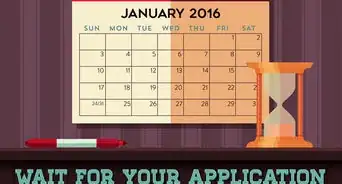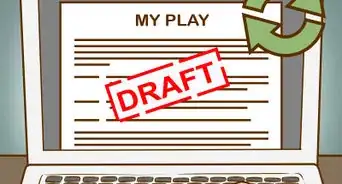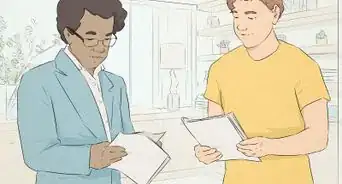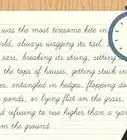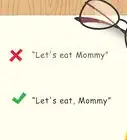This article was co-authored by Alicia Oglesby. Alicia Oglesby is a Professional School Counselor and the Director of School and College Counseling at Bishop McNamara High School outside of Washington DC. With over ten years of experience in counseling, Alicia specializes in academic advising, social-emotional skills, and career counseling. Alicia holds a BS in Psychology from Howard University and a Master’s in Clinical Counseling and Applied Psychology from Chestnut Hill College. She also studied Race and Mental Health at Virginia Tech. Alicia holds Professional School Counseling Certifications in both Washington DC and Pennsylvania. She has created a college counseling program in its entirety and developed five programs focused on application workshops, parent information workshops, essay writing collaborative, peer-reviewed application activities, and financial aid literacy events.
This article has been viewed 42,580 times.
Hopefully, it never happens to you that you plagiarize unintentionally, because you read up on what constitutes plagiarism, and you took great care to cite your sources. However, sometimes it does happen that a student writes what they're convinced is an A-paper for school, only to be shocked and horrified when they get it back to find a "0" and a "Please see me after class" written on it. If you accidentally plagiarized, start with step one, below, for some steps you can take to deal with the situation and learn from the incident.
Steps
-
1Calm yourself. At this stage, you will inevitably feel not only shocked, but also confused and bewildered. You know yourself as an honest student who would never dream of taking another's work and passing it off as your own. However, if your teacher is claiming you did in fact do this, there's almost certainly some subtle way in which you did that you weren't aware of. You can take a few deep breaths or ask your teacher for a minute or so of silence to calm yourself and reflect on your feelings.
-
2Ask your teacher what you did that got you accused of plagiarism. Your teacher may have indicated on your paper what constituted plagiarism, but if not, be sure to ask your teacher what went wrong:[1]
- Did you forget to cite a source?
- Did you cite a source, or all your sources, improperly or inadequately?
- Did you forget to write quotation marks around a direct quote?
- Was your paraphrasing too close to the original?
- Did you receive editing or proofreading assistance that you didn't realize was not allowed?
- Did you leave something un-cited because you thought it was common knowledge, but your teacher didn't think it was?
- These are common pitfalls of accidental plagiarism that all students should learn to avoid. In addition to clarifying with your teacher how you plagiarized in this particular incident, also ask your teacher to go over with you the complete definition of what constitutes plagiarism so that you don't plagiarize again in the future. The punishment for a second bout of plagiarism is often much more severe than the first, and the second time around, you may be given an automatic F in the course, not the assignment.
Advertisement -
3Apologize. Tell your teacher (and also mean it) that you are sorry you plagiarized your paper, albeit unintentionally. Inform your teacher that you know that plagiarism is wrong, that you are really an honest student, and that you didn't mean to plagiarize. If this is the case, and your teacher believes you are being sincere, (s)he may deal with your case more leniently, such as allowing you to redo the paper, letting you off with a warning, or taking a certain percentage of marks off.
- However, do not hope or expect your teacher to be lenient on you. Your teacher still has authority over you, and your school probably has a strict set of rules on how to deal with cases (even accidental ones) of plagiarism.
-
4Take responsibility for your actions. It can be difficult to deal with a school that has overly strict rules and uptight teachers, but everyone makes mistakes that they learn from. You didn't mean to plagiarize, but you'll get into the least trouble if you admit your mistake honestly and learn to paraphrase/cite properly next time.
- If no one taught you how to properly cite your sources or put a paper into your own words, you may not understand exactly what you have done. You will likely still get into trouble, but you can learn from your mistake. You didn't completely understand the rules; just ask your teacher, parents or another authority figure for help or to clarify any questions you may have.
-
5Try to ask your teacher for leniency. Emphasis on "try" and do not beg your teacher either. Simply ask your teacher if, just this once, you might be allowed to redo the paper in a fully non-plagiarized way, now that you've clarified where you went wrong. If your teacher says 'no' you must accept that. Ultimately, you must accept whatever position your teacher gives. If your teacher insists that you must receive a '0' or an 'F' on this paper for the plagiarism, you must accept that. Try to improve your overall grade at the end of the course by doing well on assignments and tests in the future to make up for the '0'.
-
6Do a thorough read-up on plagiarism. Either ask your teacher for a complete, thorough analysis of what constitutes plagiarism and how to avoid it, or ask for any book or online resources on the subject. The more knowledge you have, the more readily you will be able to write original work, and cite what needs to be cited, and the less likely you will be to accidentally plagiarize in the future.
-
7Cite all future assignments properly. Use your new knowledge whenever you do an assignment or paper in the future to not plagiarize again.
Community Q&A
-
QuestionMy friend showed me a recipe for dog cupcakes and I asked her if I could upload them to wikiHow, and she said yes. Then I found out it was copied from a website. What do I do?
 MusicIsEverywhereCommunity AnswerProvide a link to the website to show your readers the original source, and make it clear that this recipe is not your original work.
MusicIsEverywhereCommunity AnswerProvide a link to the website to show your readers the original source, and make it clear that this recipe is not your original work. -
QuestionWhat if something is common knowledge, and all the sources phrase it the same way and you phrase it the that way because that's how you would have done in the first place and the teacher says it's plagiarism?
 MusicIsEverywhereCommunity AnswerAnything that is common knowledge does not need to be cited, because it is not the source's author's own material, but rather facts that are collectively known by many people.
MusicIsEverywhereCommunity AnswerAnything that is common knowledge does not need to be cited, because it is not the source's author's own material, but rather facts that are collectively known by many people. -
QuestionWhat if I come up with an idea that wasn't subconsciously copied, yet the same point was made by someone else without me knowing? Should I look up every idea I have that I think is original?
 MusicIsEverywhereCommunity AnswerAnything that you come up with is your own, so does not need citing, even if someone else happened to come up with it independently of you. For instance, Dennis the Menace was created by two independent, different authors by coincidence.
MusicIsEverywhereCommunity AnswerAnything that you come up with is your own, so does not need citing, even if someone else happened to come up with it independently of you. For instance, Dennis the Menace was created by two independent, different authors by coincidence.
Warnings
- Do not get mad at yourself or any other person over this. You may feel guilty that you plagiarized and you may feel cheated out of what could have been a good grade, but anger will not accomplish anything and will not help you in the future.⧼thumbs_response⧽
References
- ↑ "Plagiarism Avoided: Taking Responsibility for Your Work." U.B.C. Faculty of Arts, 1999. Page 3.
- ↑ "Plagiarism Avoided: Taking Responsibility for Your Work." U.B.C. Faculty of Arts, 1999. Page 2.
- ↑ "Plagiarism Avoided: Taking Responsibility for Your Work." U.B.C. Faculty of Arts, 1999. Page 3.
- ↑ "Plagiarism Avoided: Taking Responsibility for Your Work." U.B.C. Faculty of Arts, 1999. Page 12.
